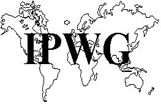Abstract
Blessing or Curse?
Religion in Kosovo and the Balkans
In the ongoing debate about the role that religion has played in the recent wars in the former Yugoslavia, there is much negative attention given to its contribution to the formation of nationalist identities.
From the perspective of an outsider, there can be no doubt that religious leaders were complicit or even actively involved in the violence. Yet at times religious figures have issued very clear calls for peace and coexistence, and have even taken the lead in trying to make them a reality.
What is the place of religion in efforts at building multiethnic societies? Can religion in the Balkans be something more than a wedge to separate different identities?
Those who attempt to exclude religion from the discussion table are doomed to experience what some observers of the Middle East Peace process have called the "Thirteenth Fairy Syndrome." (If you invite 12 fairies to the banquet but exclude the 13th, she will put a curse on the entire event.) Ultra-religious groups such as Hamas must be included in peace talks if there is to be any hope of a viable peace in the Middle East. In the same way, it is crucial to include the religious leadership in rebuilding societies in the Balkans. They have a vital role to play in civil society building that is often overlooked.
This paper will examine the roles of religious leaders in society, and discuss their common concerns, such as protection of religious buildings, freedom of movement, and their efforts to help the many traumatized members of their communities. It will also highlight the inherent tension between their call to be loyal to their own communities, and their call to be faithful to traditions (Islam, Christianity, and Judaism) that are universal in their focus. The paper will conclude by examining practical ways in which religiously-motivated people are currently contributing to conflict resolution in Kosovo and elsewhere, and ways in which the religious communities in the future can become forces for cohesion rather than division.
For the full text please contact the author !
|




